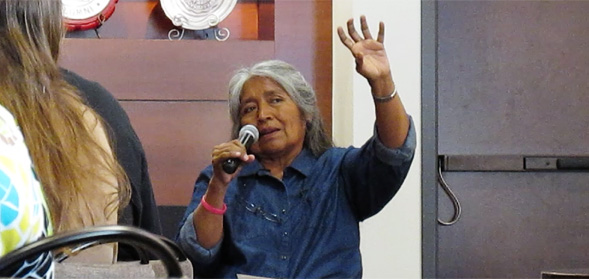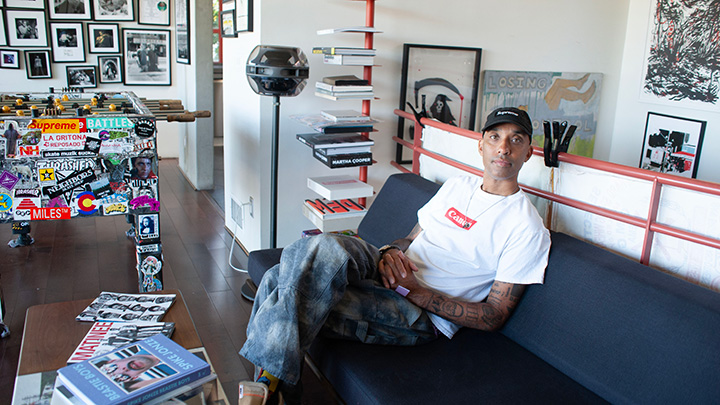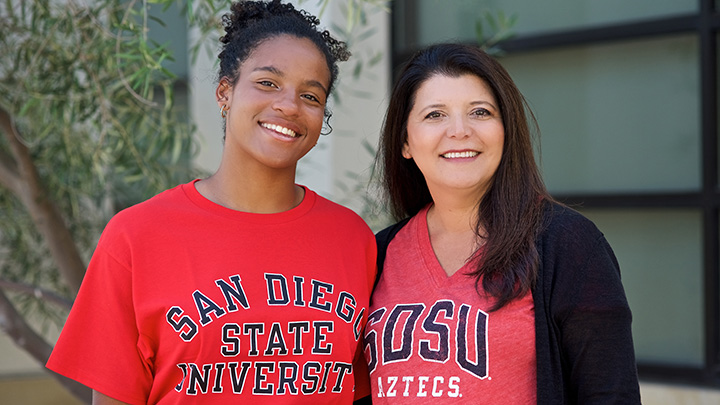A Common Experience
The SDSU community joins together to academically involve students through a shared theme.

Many San Diego State University students will remember freshman orientation where they were presented with a summer reading assignment.
Once school began some students might have used the book in a class or two, but for others, the reading may have gone untouched. This practice was known as the Common Experience.
The program has now been improved and expanded to include all departments on campus. This year’s theme is “Experience Water.”
Academic involvement
The Experience Water initiative’s overall goal is to promote academic involvement outside of the classroom. The program’s coordinator, Jose Preciado, hopes that it will create a habitual educational interest in the lives of SDSU students.
“When college students develop these academic behaviors they are going to be that same kind of individual in the future,” said Preciado, SDSU’s director of Academic Engagement Programs. “You’ll be interested in putting Twitter down for a bit and engaging with your community."
Universities across the nation have traditionally had summer enrichment programs comprised of a shared reading book. A professor at Texas State University had the idea to create comprehensive programming featuring a different theme each year that could be applied across campus. As a result, the common experience was born.
Water Lives in Words
Recently, SDSU's Common Experience brought distinguished Native American poet Ofelia Zepeda to the university to share the power of poetry in a presentation titled “Water Lives in Words.” Coming from the Tohono O'odham nation, which resides in Southern Arizona, Zepeda’s work focuses on the vital role of water for native desert inhabitants.
“Meeting Ofelia Zepeda was a transformative learning experience for hundreds of students and faculty,” said Joanna Brooks, chair of the Department of English and Comparative Literature. “I've had so many students — Native American students especially — describe her as an inspiration for their lives and careers.”
Student involvement
The program is funded by the Thomas B. Day Student Success Program as well as the Aztec Parents Association which both contribute annual awards. Common Experience events can receive a grant of up to $2,000. Organizations like Global Brigades, E3 and the theater department have operations being funded by Common Experience.
Global Brigades is the world’s largest student-led global health and sustainable development organization. They are currently recruiting members to participate in water sanitation projects to improve the quality of life for people in developing countries.
E3, also known as the Enviro-Business Society, is in the middle of a campaign to eliminate the sale and use of single-use water bottles on campus. Ultimately they would like to provide water stations on campus to fill reusable bottles.
In the spring, the School of Theater, Television and Film will present an adaptation of “The Jungle Book.” This version will focus on troubles in the jungle when the animals have to cope with the reality of their disappearing watering hole.
Future experiences
The Division of Undergraduate Studies sends out a call for proposals each year for prospective Common Experience events. Preciado and his team are already looking to make the next experience even more successful.
“I would like for these kinds of programs to be as exciting as going to a basketball game,” Preciado said. “It has the potential to be beneficial, enriching and entertaining.”
Preciado intends to announce the themes for the next two to three years in advance so that participants can begin the early stages of planning. The SDSU community might have themes such as "Experience Food" and "Experience Health" to look forward to in the coming years.



